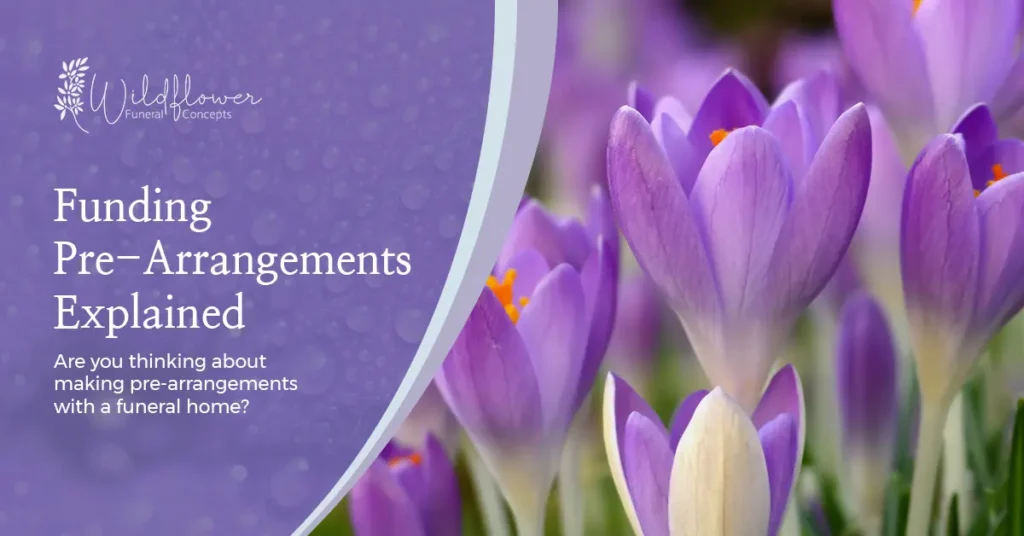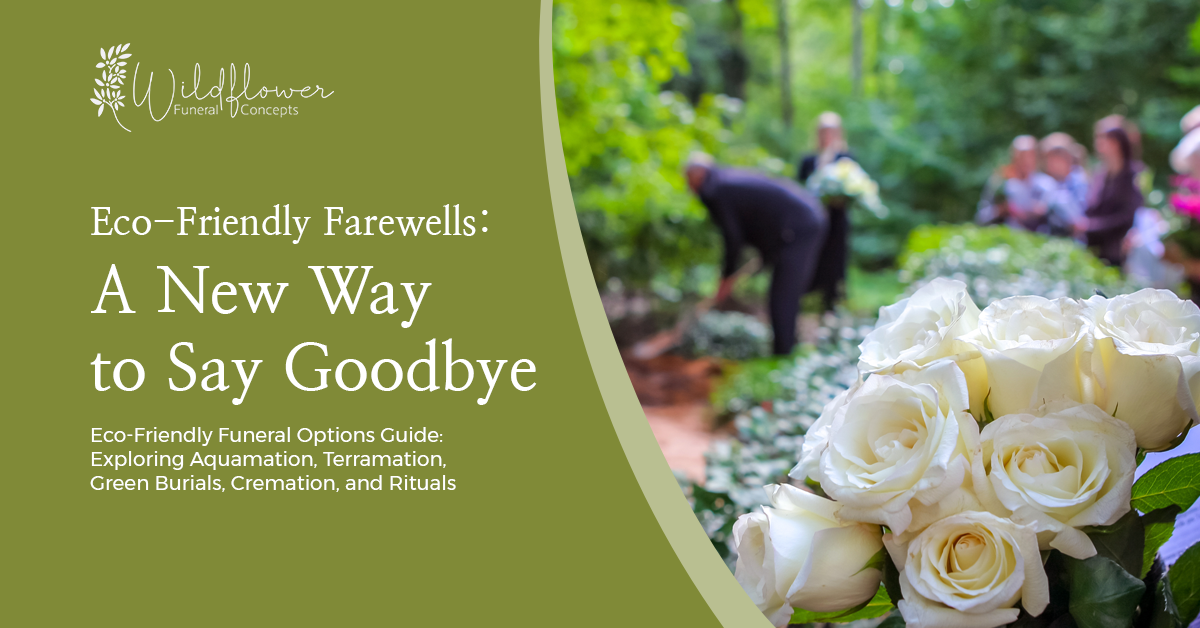Are you thinking about making pre-arrangements with a funeral home? It’s essential to understand the process and how your funds are managed. Under state and federal consumer protection laws, funeral homes are not allowed to collect money for goods and services to be delivered at a future date. Instead, a funding vehicle is required, and the most common one used is a whole life insurance policy known as Final Expense Insurance.
At Wildflower Funeral Concepts, both funeral directors are licensed to sell life insurance, which allows them to help families secure these policies as part of their pre-arrangements.
Selecting Your Funeral Goods and Services
When making pre-arrangements, you can choose the goods and services you need from the funeral home’s General Price List. Additionally, you can plan for external items such as:
- Death certificates
- Newspaper obituaries
- Flowers
- Clergy honorariums
- Reception catering
The total cost of these selections is paid to the insurance company as a premium. This premium then becomes the death benefit (the amount paid out after death) of a small whole life insurance policy. The insured person owns this policy, and it is an asset that is assigned to the funeral home. Upon the insured’s death, the funeral home files the insurance claim and receives the funds directly. Any unused funds are returned to the deceased’s family.
How Does the Death Benefit Grow?

Over time, the death benefit of a whole life policy increases. The insurance company invests the premium, and a portion of the returns from those investments is shared with the insured. This growth helps hedge against inflation, ensuring that the cost of funeral goods and services is covered as prices rise.
At Wildflower Funeral Concepts, we guarantee the cost of the goods and services we provide. Even if the insurance policy’s growth doesn’t fully cover cost increases, we discount our services to honor the original agreement. This guarantee is backed by state and federal law.
Non-Guaranteed Cash Advance Items
For items provided by third parties, such as:
- Death certificates
- Newspaper obituaries
These are classified as Non-Guaranteed Cash Advance items. While the funds for these items are held within the insurance policy, Wildflower Funeral Concepts cannot guarantee them since they come from external sources. If the funds fall short of covering the cost of these third-party items, the family may have to pay out-of-pocket. However, if there are excess funds, they will be returned to the family.
Example Scenario: Mrs. Smith
Let’s take an example to clarify how this works. Keep in mind that the following figures are for illustrative purposes and do not reflect actual pricing.
- Mrs. Smith pre-arranged her funeral services, including a simple cremation costing $3,000 and 10 death certificates at $250 ($25 each).
- She made a single premium payment of $3,250 to the insurance company.
Ten years later, when Mrs. Smith passes away, the value of her policy has grown to $3,900:
- $3,600 is designated for the guaranteed simple cremation.
- $300 is allocated for the 10 death certificates.
At the time of her passing, the cost of cremation has increased to $3,800, while the cost of death certificates remains the same at $25 each. Mrs. Smith’s family only needs 4 death certificates, which costs $100.
Since the insurance policy didn’t grow enough to cover the cremation cost, Wildflower Funeral Concepts honors their guarantee and discounts the cremation by $200. The $200 leftover from the death certificates is refunded to the family. According to federal and state law, it cannot be applied to cover the funeral home’s discount.
Policy Ownership and Control
It’s crucial to note that the Final Expense Insurance Policy is always owned by the insured. They have the right to change the assignment of the policy at any time. For instance, if the insured moves to a different state, they can assign the policy to a new funeral home near their new residence.
In summary, the insurance policy is an asset owned and controlled by the insured, giving them full control over its assignment and use.







